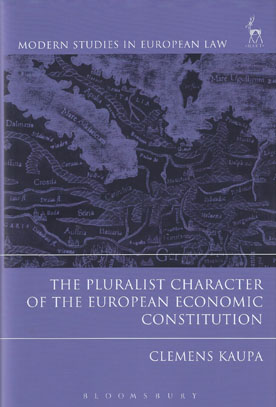
This monograph intervenes in the long-standing and controversial debate on the socio-economic orientation of the European Union.
Arguing that the European economic constitution is pluralist in the sense that it does not favour any specific socio-economic model, it shows that internal market law allows the pursuit of very different regulatory projects by the European and the national legislators.
The book takes an interdisciplinary approach: the three main chapters analyse the history of the internal market, its regulatory purpose in the light of current socio-economic conflicts and its textual basis as interpreted and developed in the case law of the Court of Justice of the European Union.
By challenging the orthodoxy, the book makes a bold proposition that will likely resonate in both internal market law scholarship and European law in general. With the ongoing economic crisis triggering a significant interest in economic questions among legal scholars it is particularly timely and topical.